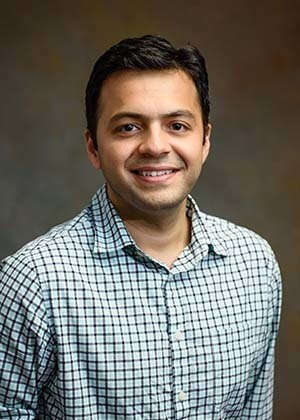"Anaerobic treatment technologies for energy recovery from wastewater: Unraveling the missing links within the anaerobic food web" by Sudeep Popat

Abstract
Anaerobic conversion of waste organics involves a series of complex, often syntrophic microbially-catalyzed reactions of hydrolysis, fermentation, acidogenesis, acetogenesis, and finally methanogenesis. The success of anaerobic technologies for energy recovery from waste organics relies on the ability of the microbiome to channel electrons from complex substrates to methane. In this presentation, I will highlight my group’s efforts in using bioprocess engineering principles along with molecular microbiology techniques to elucidate key microbial interactions in two example anaerobic technologies for conversion of waste organics. First, in anaerobic co-digestion of municipal wastewater sludge with fats, oils and grease (FOG) as a co-substrate, we have shown how under FOG overloading conditions palmitic acid accumulation limits biogas production. Palmitic acid accumulation does not directly inhibit methane production, rather is a result of inhibition of syntrophic palmitic acid-oxidizing bacteria, creating a bottleneck along the anaerobic food web pathways. Second, in anaerobic membrane bioreactors (AnMBRs) for domestic wastewater treatment, we have shown how the presence of sulfate in influent wastewater can channel electrons away from methane resulting in complex interactions surrounding sulfur metabolism, despite allowing desired overall treatment performance.
Biography
Dr. Popat obtained his Ph.D. in Chemical and Environmental Engineering from the University of California, Riverside, after which he worked as a postdoctoral research associate and then a research scientist at the Biodesign Institute at Arizona State University. His research group focuses on anaerobic biotechnologies and electrochemical technologies for resource recovery from domestic and industrial wastewater. Current areas of interest include anaerobic digestion, anaerobic membrane bioreactors, microbial fuel cells, and electrochemical ammonia stripping. Dr. Popat’s prior work also includes research in the areas of reductive dehalogenation of chlorinated ethenes, and gas-phase bioreactors for waste gas treatment and air pollution control.
Seminar sponsored by the Department of Civil and Environmental Engineering and Earth Sciences
Downloads:
Popat Seminar Flyer